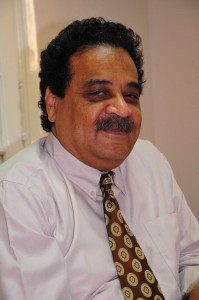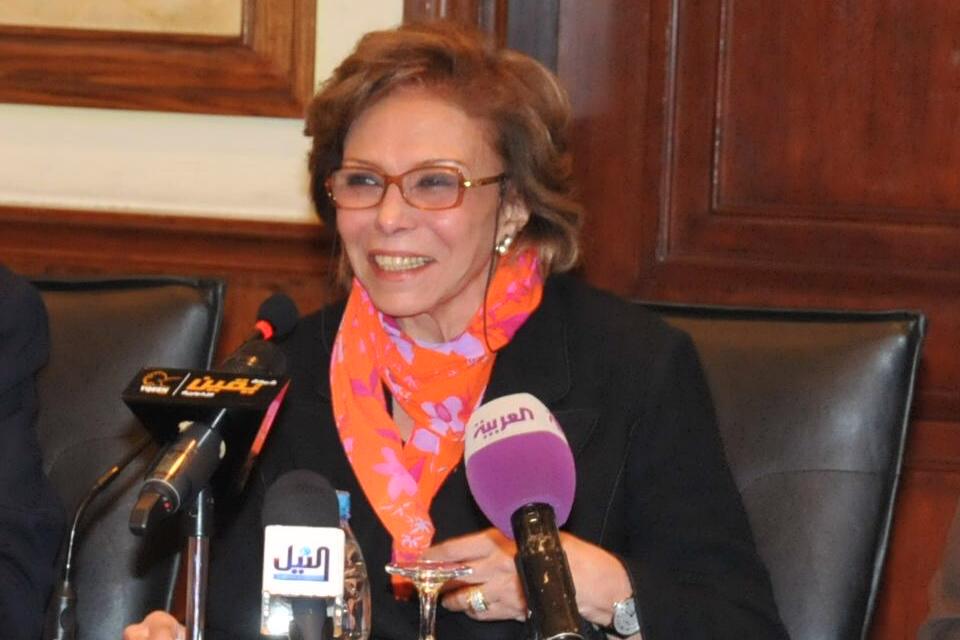
Since 30 June and until now, there has been a struggle between those who have united over the fall of Morsi and the Muslim Brotherhood. They are comprised of the hegemonic state movement and the democratic movement. This conflict manifests inside the cabinet, as well as different state apparatus, leading to a noticeable state of confusion and sluggishness. People often relate this to the government’s failure, and by this they mean the failure of the ministers that belong to the democratic movement, who make only seven ministers in the whole government. However, supporters of the police state believe the only two successful ministers are those of the Ministry of Interior and the Ministry of Defence.
This conflict sometimes seems to intensify and weaken at different times, dependent on the different political occurrences. The dispersal of the Rabaa and Nahda sit-in was one of those occurrences which ElBaradei wanted to become definitive when he submitted his resignation. However, it was not, and few were understanding of his position and that of some groups considered supporters of the Muslim Brotherhood.
In reality, the Rabaa dispersal led to two kinds of objections. The first was like that of ElBaradei, thinking that some kind of reconciliation is possible with the Brotherhood to prevent confrontation. I am certain that the Brotherhood would never have accepted any kind of reconciliation based on a concession and acceptance of the current situation. Therefore, ElBaradei’s position is irrational and illogical and did not garner any public support. He also did not garner the support of any democratic forces and was unable to cause a separation between the new alliances.
The second kind of objection was concerned with the method of dispersal, since many representatives of the democratic movement did not ask for the sit-in to be dispersed violently, but to be besieged, while cutting the sit-in’s line of supplies and pursuing the Brotherhood’s leaders, which would have led to the gradual decrease of protesters.
However, these objections did not lead to a separation between the two movements. Inside the cabinet, there is little struggle despite what people believe concerning a big conflict over Dr Bahaa El-Din’s proposal. The truth is that this proposal did not lead to a conflict and both ministers of Defence and Interior supported it. The reason the public was given this impression was that the supporters of the hegemonic state raged a war against the proposal, saying it was a plan to reconcile with the Brotherhood even though it was entitled “the democratic path activation initiative”. They also insisted that it was Dr Bahaa El-Din’s proposal even though it was presented as the cabinet’s initiative.
Up until the Protest Law, the public was not aware of any conflict within the cabinet. The media relayed that there was an intense conversation concerning the law ever since it was proposed, ending with it passing against the will of most of the democratic movement. This led to an invitation to the interim president to hold a community dialogue concerning the law before it passed. Except for a meeting with Dr Bahaa ElDin and some political parties’ representatives and consulting the National Council for Human Rights, the dialogue did not occur. The whole issue then took a back seat, especially since most political entities wanted to postpone the law until the parliament was formed so that it would issue it.
No one really knows why the interim president chose to pass the law in this form and at this time, when there is a lot of conflict in the Constituent Assembly concerning military trials for civilians and other texts considered oppressive by the democratic movement. It is expected that the supporters of the hegemonic and police states would approve a law that gives the Ministry of Interior the right to approve or quell protests. This is normal because they do not only want for the ministry of interior to control protests, but also to control Egyptians’ lives. However, it is not normal for any democratic entity or supporter to accept such an oppressive law. Those pushing for the law meant to form a divide between the democratic forces and other entities, so that those who refused the law were accused of being Brotherhood agents and the like. This would lead to their elimination from the scene and the monopolisation of the country’s rule… again. They may even be dreaming of the return of Al Adly. I am not exaggerating; a few days ago a former general told me on a state television show: “God be with the one you called the eye-sniper, he was protecting the Ministry of Interior.”
The Protest Law can be the thing that leads Egypt to a crossroads, but do officials realise the danger? If they do, will they worsen the situation, leading to more damage and division, or will they try to save the country from returning to Al Adly’s dominion?




